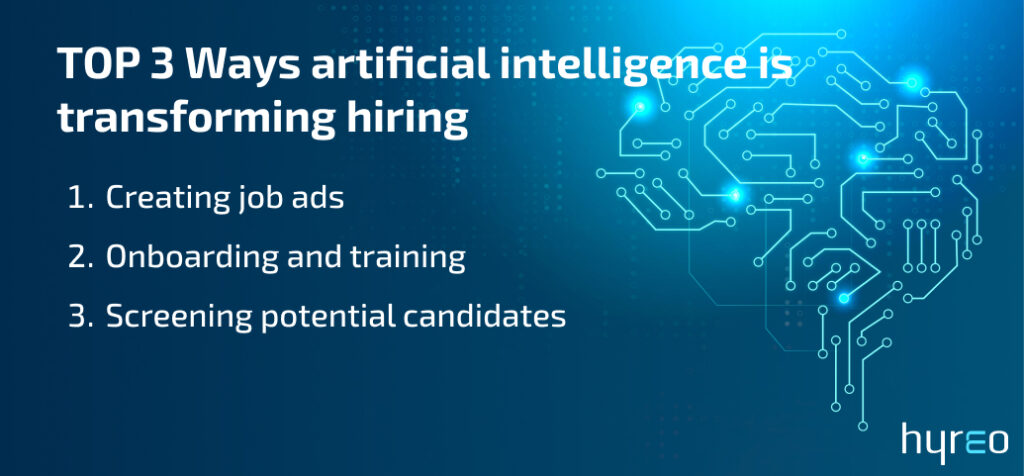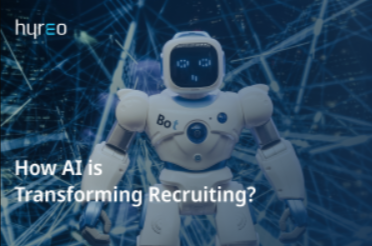According to SHRM, 88% of all companies globally use AI in their HR activities. This is especially true in the field of recruitment. AI has become an integral part of the recruitment life cycle. Right from the very beginning to the end, AI is starting to get involved in hiring.
This article was developed to remove some of the preconceived notions surrounding AI, provide clarity to the role that AI can play in recruitment and provide information on what the benefits of using AI are.
This article will help you
- Increase your understanding of AI and its effect recruitment
- Understand key benefits of using AI in recruitment
- Discover essential AI-powered platforms which would make life easier for recruiters
- Understand what the future holds for AI in recruitment


Significance of AI in recruitment
Artificial intelligence (AI) is the science of training machines to do tasks that were previously done by humans. While this may sound simple enough on its own, AI really comes to its own when it is used to deal with large amounts of data. When applied to large data sets, AI is able to solve large complex repeatable problems and provide high quality results on a consistent basis.
Putting this use case of AI in recruitment, it is clear what it can do. AI’s role in recruitment is to provide operational efficiency, while at the same time giving scope for personalization and generating insight via data analytics. By applying the ability of AI to automate repetitive tasks, it can be used to automate high volume recruitment functions, such as sourcing, screening, and scheduling. This leaves recruiters free to make better decisions. AI in hiring is not meant to replace humans, but to enhance their productivity.
While automating repetitive tasks is an undoubted plus, the ability of AI to provide insights into data and the scope of personalization is what truly differentiates the companies which do not use it in recruitment and those that do. AI enables recruiters to discover passive candidates and also discover data driven insights to make better hiring decisions and as result, achieve better outcomes such as quality of hire.
4 ways artificial intelligence is transforming hiring?
While a few examples were given earlier, such as sourcing, screening and scheduling, AI can intervene and improve productivity across the hiring process.
They also help recruiters create compelling brand stories on career landing pages, appealing job applications and postings, sharing them on social media, career sites and company websites, helping attract and engage top talent.
Here is a list of activities where AI can make a difference –
#1 Creating job ads
Multiple platforms are now available on the web, which can aid in the process of creating interesting job ads. These platforms are capable of generating text based on the brand tone and can also use region specific vocabulary if needed.
By providing ad copies which would have the best chance of attracting talent and have them apply, these AI solutions would save a significant amount of time and effort of the recruiter.
#2 Screening potential candidates
Any enterprise level organization, can expect to receive hundreds, if not thousands, of applications for any given job ad. It would be physically impossible for any recruiter to go through all the applications that they receive. What eventually happens is that recruiters will only go through a fraction of the resumes and CVs which come in, and as a result, some excellent candidates will fall through the cracks.
By having an AI solution to intervene in the screening process, the AI will be able to go through all the incoming candidate profiles and find the candidates which would be the best fit for the role.
#3 Scheduling
Scheduling is another one of those repeatable tasks which can be automated by AI. Rather than having the recruiter go through multiple calls and emails with the recruiter, candidates and the interviewer, an automated AI system can easily schedule the interview.
#4 Onboarding and training
When a new hire joins the company, one of the first things that they receive is an information packet which contains the studying and training plan. The result? An induction program where the new hire is often bored and doesn’t take in too much information.
AI can be a powerful tool to enhance this aspect of the hiring process, which is often overlooked. Interactive programs and gamification will lead to increased participation from the new hires. As a direct result of their increased participation, the new hire will also retain more information. This finally results in happier employees and increased productivity from those very same employees.
Also read: 90-Day Onboarding Plan
4 Major Benefits of using AI in recruitment
From a broad brush perspective, it is clear that AI can provide automation of repeatable recruitment activities, allowing recruitment teams free to focus on more strategic, big-picture goals. With increased development in the field of AI and more intense competition in the battle for talent, especially in the wake of the Covid-19 pandemic, Talent Acquisition leaders are looking to gain any edge they can.
Some of the benefits of AI in recruitment are –
#1 Automation
With the organizations needing to work smarter and faster, it is a given that recruiters will also have to do the same. By automating routine tasks such as sourcing, screening, and scheduling, recruiters are left with more time which could be used to make better hiring decisions.
- Creating job ads
Creating job ads which would attract the most number of applications from the best candidates
- Sourcing
Identify best fit candidates with by matching with a predefined set of criteria and scoring system
- Screening
Score and rank sourced candidates, based on the predefined criteria
- Scheduling
Use of chatbots and calendar integrations to set up interviews at times which are convenient for both the candidate and the interviewer. The Hyreo Virtual hiring events solution offers automation features which also include scheduling automation. Along with the scheduling automation, this solution can automate 60% of all recruiter tasks, reducing recruiter effort.
#2 Personalization
The talent of today does not only look at the monetary value of what has been offered to them. They also look at the learning opportunities and values alignment between themselves and the organization that they are going to work for. Given such a scenario, personalization becomes very important in the hiring process.
For the candidates, this means being recommended profiles which fit their own personal criteria. The AI system can generate candidates’ openings based on their personal profile, search history, similar job openings, job recommendations of candidates with personas similar to their own and location preferences. This increases the chance of the right job opening being presented to the right candidate.
For the recruiters and the management, the AI system will nurture a personalized pipeline with candidates who have the desired skills and compatibility so that recruiters are able to discover new talent significantly faster. This also extends to candidates who had initiated the application process but had not finished it. This increases the talent pool that could be considered for the recruitment process.
#3 Data Insights
Recruitment as a function, historically has struggled with data quality and reliability. Artificial intelligence can help recruiters to understand the data that they often struggle with and will equip them with the right information and insights which they can use to hire the right candidate.
These are the things that AI can help in recruitment with –
- Discover new talent
The AI system can help with discovering new talent, and can also help in identifying traits that have worked best for that particular organization. This will then help in all further hiring exercises.
- Understand candidate intent
It is often the case nowadays that candidates often ghost recruiters. A system where historically recruiters have ghosted candidates, have trained candidates to also do the same. But it is important to understand that the ghosting is not abrupt, there will always be some warning signs before the ghosting actually happens. But given the busy nature of recruiters, they will often miss these signs.
That is where AI comes into play. Tools like Hyreo’s Post Offer Engagement Solution, will help you understand the candidate intent and increase the offer-to-joining ratio. The tool consists of an AI powered chatbot system, which will analyze the interactions that the candidate has with chatbot and create a propensity score for the likelihood hood for the candidate to join. This will alert the recruiter on the candidate who may drop out and enables the recruiter to be proactive in engaging the candidate.
- Obtain trends in talent pipeline
The use of AI in the recruitment process, will help recruiters understand trends in the talent pipeline which might have otherwise been missed.
#4 Bias Control
According to LinkedIn, 68% of recruiters believ that AI will remove unconcious bias from the hiring process. By eliminating this unconscious bias, AI plays a crucial role in encouraging diversity and inclusion in the workplace. Candidate fit scoring ensures that candidates are screened based on their skills and experience alone.
Future of AI in recruitment
With the rate at which AI is being used in recruitment, and the pressure which organizations are under to be leaner and smarter, the use of AI in recruitment is only going to increase. From resume parsing to increase recruiting velocity, to AI backed proctoring for fairer assessments, AI is certainly going to be omnipotent in the hiring space.
Also, with the ability of AI to eliminate any inherent biases in the system, its use will lead to more consistent, quality results by ensuring that only objective decisions are made in the hiring process.
All this will mean that the modern recruiter with an AI assistant at their side will be able –
Be more proactive
The modern recruiter will be more proactive, rather than reactive, in their hiring decisions. AI will help give the recruiter more insight and time to make better strategic hiring decisions.
Focus on relationship-building
With most of their recurring tasks automated, the modern recruiter can focus on building a better relationship with the candidate, leading to a better candidate experience.
Align more closely with hiring managers
With AI, calculating KPIs such as quality of hire becomes easier. This will enable the modern recruiter to align themselves with the hiring managers to a much higher degree.
Wrap up
HR leaders have had to face major upheaval in the last few years. The use of technology was increasing at a rate never seen before, and the Covid-19 pandemic accelerated this adoption of technology.
What is abundantly clear is that AI will play an increasingly important role in the hiring process. AI will enable recruiters to –
- Increase recruiter productivity
- Generate and understand insight into data which will lead to higher levels of personalization
- Personalized job recommendations for candidates
- Eliminating unconscious bias in the system and aide in DE&I efforts
- Free up recruiter effort and allowing them to focus on building a relationship with the candidates, thereby improving candidate experience
Also read:
Strategies to reduce recruitment costs
10 Ways to Expedite Your Recruitment
FAQs on AI in Recruitment
What is the role of AI in recruiting?
AI has widespread use in recruiting. AI can play crucial roles across all steps of recruitment process. It helps in identifying suitable candidates and also aides in reducing the effort and time spent by recruiters of repetitive tasks.
Why is AI Important for Recruiting?
AI is important for recruiting because it reduces the time and effort spent by recruiters, By doing this, the recruiter is now freed up to focus on building relationships with the candidates to create a better candidate experience.
What AI Recruiting Tools Are Available?
Hyreo is a great tool for reducing recruiter effort. It is able to reduce 60% of recruiter effort and empowers recruiter to build relationships with the candidae. It can also help in understanding candidate intent and empower recruiters to be proactive and help improve joining ratio
How Can AI Support Diversity, Equity & Inclusion Initiatives?
By implementing a strict skill and experience criteria for screening, AI helps in removing an unconscious bias that a recruiter might have.




